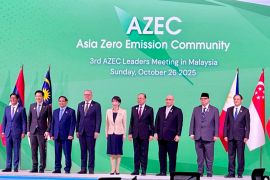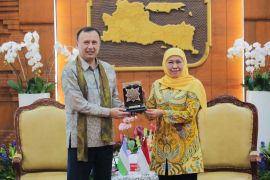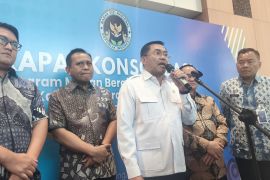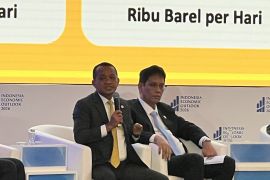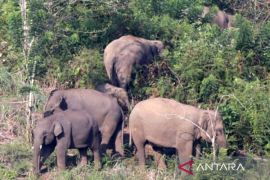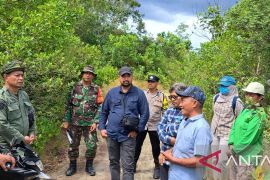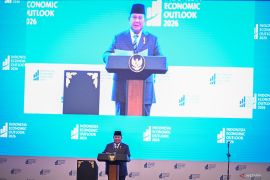The agreement was formalized in Jakarta on Monday through a financial close between PT Supreme Energy Muara Laboh and the Japan Bank for International Cooperation (JBIC).
“This geothermal power plant will have a capacity of 88 megawatts, with a project value of nearly US$500 million,” said Coordinating Minister for Economic Affairs Airlangga Hartarto after the signing.
The Muara Laboh Unit 2 plant is scheduled to begin commercial operations in 2027. An expansion, Unit 3, with a capacity of 60 MW, is expected to be operational by 2033.
The Indonesian government is committed to accelerating the implementation of several key AZEC-backed projects, including the Legok Nangka Waste-to-Energy project, Sustainable Aviation Fuel, the Sarulla Geothermal Plant, and the Java-Sumatra Transmission Network, aiming to bring them to the commercialization stage.
Strengthening Indonesia–Japan green energy ties
The signing ceremony was attended by former Japanese Prime Minister Fumio Kishida (2021–2024), now serving as the Special Envoy for AZEC, in a follow-up to recent talks between Indonesian President Prabowo Subianto and Japanese Prime Minister Shigeru Ishiba.
The bilateral meeting reaffirmed the importance of the Indonesia–Japan partnership in building a green, resilient, and equitable future amid global economic challenges.
Trade and investment ties between the two countries remain strong. In 2024, bilateral trade reached US$35 billion, while Japanese investment in Indonesia grew to US$3.5 billion—up 52 percent from 2021. Japan is now Indonesia’s sixth-largest investor, with over 12,000 projects in strategic sectors.
“The investment figure represents the trust and confidence of Japanese companies in Indonesia,” Hartarto noted.
He thanked Japan for its leadership in green innovation and support for economic resilience, particularly through initiatives like AZEC.
“Indonesia deeply appreciates Japan’s commitment to sustainable development,” Hartarto said. “This progress reflects both countries’ efforts to foster mutually beneficial economic cooperation and shared prosperity.”
So far, Indonesian and Japanese entities have signed 175 memoranda of understanding under the AZEC framework. Both sides are working to translate these agreements into real projects through public-private partnerships and a cross-sector approach.
Hartarto said that these projects highlight both countries' shared commitment to advancing the clean energy transition and green economic development.
“The visit of the former prime minister underscores the strength of the Indonesia–Japan partnership in building a low-carbon future,” he concluded.
Related news: Bali needs geothermal power to avoid future outages: official
Related news: Govt aims to increase installed geothermal capacity by 5.2 GW
Translator: Bayu Saputra, Yashinta Difa
Editor: Anton Santoso
Copyright © ANTARA 2025


